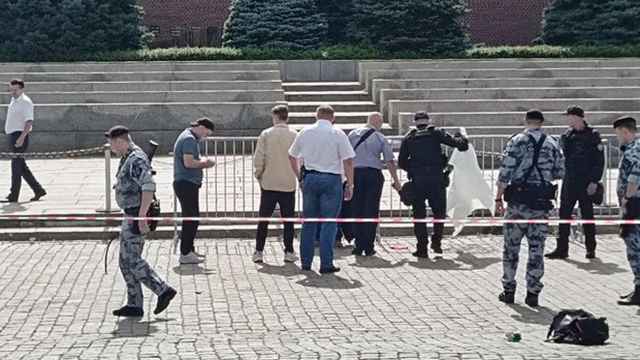The Central Bank put one of its own in charge of overseeing markets Wednesday, consolidating financial regulation as part of a Kremlin push to revive investor confidence after the trauma of the global financial crash.
Deputy Chairman Sergei Shvetsov's promotion ends a decade-old experiment with a stand-alone regulator that has seen capital and deals continue to drain away from the Moscow market even as the economy has staged a weak recovery.
Russia follows Britain in beefing up the regulatory role of its Central Bank while, as part of a broader trend, the European Central Bank will start to oversee system-critical banks in the eurozone next year.
"Russia does not have a domestic investor base," said Chris Weafer, a veteran Russia strategist who now runs consultancy Macro Advisory.
"Creating a super-regulator is a key step, but the continuing problem is that Russia is very vulnerable to external investor flows … The 'super' tag needs to be earned."
During the 2008-09 crisis, the Central Bank spent $200 billion to defend the ruble before allowing it to depreciate by more than a third against the dollar. The country's stocks suffered a peak-to-trough slump of 80 percent.
Although a recent overhaul has boosted the attractiveness of local bonds to foreign investors, Russian stocks remain unloved. Shares trade at half their precrisis highs and at an earnings discount of around half to other emerging markets.
Shvetsov, 42, emerged as the sole contender for the job after Dmitry Pankin, head of the Federal Service for Financial Markets, or FSFR, that is being wound up, bowed out of contention Tuesday.
In a statement, the Central Bank confirmed the appointment of Shvetsov, who until now has been in charge of managing its half a trillion dollars in foreign reserves. He will also become a first deputy chairman, effective Sept. 1.
"He was the last candidate," said one source familiar with the process. Shvetsov declined to comment but was due to hold a news briefing on Thursday.
The FSFR, founded in 2004, had a narrow mandate, and although under Pankin it upgraded clearing procedures and created a central securities depositary, it never got to grips with sharp stock market practices in Moscow.
Shvetsov this year weighed into a controversy over state oil major Rosneft's $55 billion takeover of TNK-BP, a deal that enraged minority shareholders because no offer was made to buy their shares in the Anglo-Russian venture.
He told a conference in April that Rosneft had acted lawfully: "That means we have to change the rules, and these rules should defend the minority shareholder," he said then.
Share volumes on the Moscow Exchange fell 38 percent in the year to July, and President Vladimir Putin has imposed a ban on state companies floating shares abroad after an exodus to markets like London and New York.
Although Russia enacted a law in 2011 against insider trading — or profiting illegally from access to privileged information — there have been no high-profile convictions. A recent FSFR probe into the takeover of cosmetics firm Kalina ended up falling foul of the statute of limitations.
Stock trading in Moscow should get a boost from the introduction in September of so-called T+2 settlement, in which payment is made two days after a bargain is struck, in line with international market practice.
But, say investment strategists, what Russia really needs for market reforms to create a positive snowball effect is a recovery in economic growth, which has slowed to a virtual halt.
Shvetsov's move will clear the way for Ksenia Yudayeva, Russia's Group of 20 summit coordinator, to assume a senior Central Bank post after Putin hosts leaders at a summit in St Petersburg next month, sources also said.
That would help the Central Bank's new head, Elvira Nabiullina, to cement her authority and add a “dove” to its monetary policy team, tilting its bias towards pro-growth cuts in interest rates.
"Nothing helps a financial market like economic growth," said Slava Smolyaninov, a strategist at Uralsib Capital. "Any reform is all well and good, but on its own it won't change the situation on the market."
A Message from The Moscow Times:
Dear readers,
We are facing unprecedented challenges. Russia's Prosecutor General's Office has designated The Moscow Times as an "undesirable" organization, criminalizing our work and putting our staff at risk of prosecution. This follows our earlier unjust labeling as a "foreign agent."
These actions are direct attempts to silence independent journalism in Russia. The authorities claim our work "discredits the decisions of the Russian leadership." We see things differently: we strive to provide accurate, unbiased reporting on Russia.
We, the journalists of The Moscow Times, refuse to be silenced. But to continue our work, we need your help.
Your support, no matter how small, makes a world of difference. If you can, please support us monthly starting from just $2. It's quick to set up, and every contribution makes a significant impact.
By supporting The Moscow Times, you're defending open, independent journalism in the face of repression. Thank you for standing with us.
Remind me later.






